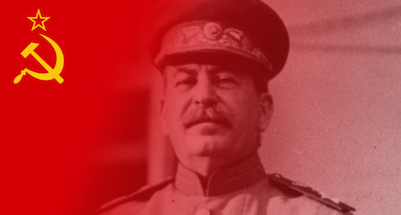He said that he was worried about the deterioration of the values held by the church. “The people of my generation remember what was the approach of the ‘builders of Communism'. It was a simplified version of the contemporary values and morals expressed by the church and when this simplified version ceased to exist, a moral vacuum was created. This void should be filled with values, ones that originate with the church.” Not the values identified with the Soviet era, the loss of which Putin claims to have been the greatest catastrophe of the twentieth century.
In this respect, Putin said, it isn't surprising that without pressure from either the state or the church, the Russian community has returned to its roots, to faith and spiritual values.
To those that are convinced that a genuine process of liberalization, that an avowed rejection of Stalinism is apparent in the Russian leadership, in spite of the systematic persecution of a democratic opposition, Putin's quotes from the film certainly seem to reinforce their observations.
But Putin in the very same film also says: “When the Great Patriotic War started, the first to turn to the Soviet people was Molotov (Vyacheslav Molotov, Russian premier and foreign minister at the time) and called them citizens and female citizens. But when Stalin delivered a speech, in spite of his harsh treatment of the church, he called the people brothers and sisters. This had a very deep meaning, because this was an appeal to the heart, the spirit, the history and our roots rather than meaningless words. This depicted the tragedy of events and called upon all to defend the country.”
Although these musings speak to Putin's personal relationship with Russian orthodoxy, his comments about Stalin are not consistent with someone sincerely motivated to remove the aura and heroic legend of the dictator. Some people who condemn Stalin's inhumanity and profess to be proponents of de-mystifying Stalin still see some redeeming qualities in him. They see him as a powerful manager of events, they praise his accomplishments such as the building of the Moscow subway during the hardship of the war years or his ability to mobilize a massive military effort in defeating Hitler, etc.
Putin, however, still sees Stalin as the repository of the Russian soul, as the father-figure that Russia yearned for during desperate times. In fact Putin's words seem to derive from a deep-seated nostalgia, more to be in tune with the rehabilitation of Stalin, of which he has been accused. To say that Stalin's war-time appeal resonated in the hearts of all Russians may in fact be a credible claim, but most war-time leaders can, because of the extreme circumstances, rally the masses without being anointed with awe and reverence.
Even though Russians themselves were the prime victims of Stalin's repressions, only one small museum in Moscow is dedicated to exposing the horrors of the Gulag in which tens of millions of Russians perished. In the far-flung hinterlands where the Gulag labour camps existed, some museums have been established, but usually as initiatives of private individuals, not the government.
Hope still exists in Russia for a de-Stalinization program to be sanctioned and supported by the government. Already over two years in the planning stage, a possible program has rejected radical proposals such as the prosecution of communist or Stalinist crimes. But it still contains essential aspects for Russians. A feature element in the program is the exposure of Stalin-era crimes, especially ear-marked for youth. The plan also includes better access to previously sealed archives and the establishment of government museums depicting the horrors of Stalin's repressions. The program is named “The perpetuation of the memory of the victims of totalitarianism and national reconciliation”. It was initiated by the previous Russian president Dmitri Medvedev in 2011 and has been finally approved by the Kremlin with federal financing. Just in terms of its international image, it behoves Russia not to have as change in heart about the program. Can the program sustain the necessary momentum to progress? (To be continued.)
Laas Leivat




